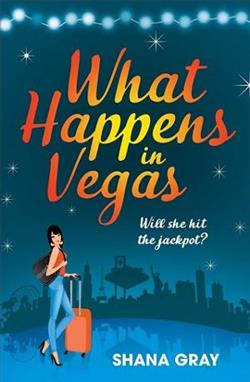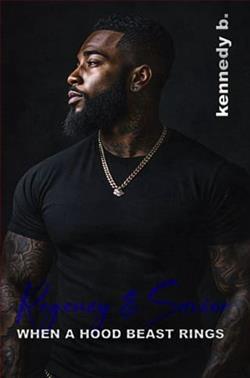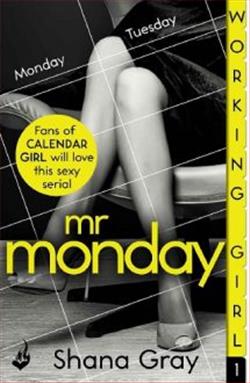Page 5 of Silence and Surrender
I paused at the door.
“Next time you decide to bend the rules?” His voice was quiet, yet commanding all the same. “Remember that some of us are paid to pay attention.”
I left without responding, but his words followed me out into the hall.Paid to pay attention.I hated that he was right. Hated even more that beneath his rigid adherence to protocol, Moreau’s eye for detail was something I actually respected. He’d caught something in those manifests, the same weight discrepancies I’d noticed. For all his corporate stiffness and lecture-ready posture, the man saw patterns where others saw only paperwork. It was the one quality that made our arguments almost...stimulating. Not that I’d ever admit that to him.
Maybe the great Colton Moreau wasn’t just questioning my methods.
Maybe he was questioning something else entirely.
Chapter Three
Colton
“Mr. Moreau? Miss Delacroix is here about the Durand account.” My assistant’s voice came over the intercom.
Just what I needed to complicate my morning. Another tiring argument with Isabella Delacroix.
I hadn’t expected to see her again so soon after our confrontation about the Caravaggio. Two days of blessed silence from the bank’s most irritating art expert had done little to cool my temper—or my unwanted awareness of how that elegant black skirt suit had hugged her curves.
The files spread across my desk provided a welcome distraction. Shipping manifests that didn’t add up, paperwork that was too good to be true, client acquisitions that made no logical sense. At least when I was buried in evidence of potential fraud, I wasn’t thinking about the way Isabella Delacroix’s cheeks turned red when she was angry, like she had nothing but fire hiding in her soul.
She entered my office like she belonged in Sotheby’s back room, full of quiet confidence and old money grace. Raven-colored hair fell in an angular cut just below her shoulders, framing features that belonged in a Renaissance painting—if Renaissance painters had captured women who knew exactly how much their work would sell for centuries later. Her suit was Chanel, but it was her eyes that gave her away; she had the kind of seasoned intelligence that came from knowing the difference between a genuine Rembrandt and a Dutch Golden Age contemporary worth a fraction of the price.
For a split second, my mind slipped into its usual patterns, assessing her like I would one of my carefully selected encounters. High-end hotel suite, expensive champagne, practiced pleasure with clear boundaries. But something stopped me. Maybe it was the way she studied the room with an expert’s eye, catching details I’d spent hours arranging. Or how she carried herself with the kind of elegance that couldn’t be bought or learned. This wasn’t a woman who would accept the careful distance I maintained with others. Isabella Delacroix was the kind of woman who would demand everything or nothing at all.
I quickly shut down my lingering gaze. But goddamn her for looking so perfectly put together. It was evident that she came from money; while I struggled to adjust to my new position and seven-figure salary after years of living paycheck to paycheck, drowning in Dad’s medical debts with my battered truck and clearance rack suits, she wore her wealth like a birthright. I had shoppers I paid to make me look good now, to make sure my suits were the best of the best, but Isabella knew instinctively how to play the game. Even my new wardrobe felt like a costume I was still growing into, while she radiated the kind of ease that only came from never having to check price tags.
“Your secretary said you’d be reviewing the Durand files.” Her speech was refined and cultured. No doubt the type of polish bought from years of prestigious private schooling and etiquette lessons. “Though I see you’re more interested in the pieces we acquired last quarter.”
I didn’t bother asking how she knew what I was looking at. Instead, I continued to study her as she moved to my desk, noting how her eyes lingered on each document with the practiced assessment of someone who’d seen too many forgeries to trust paperwork alone. The morning light caught the sharp angles of her cheekbones, making her look like something carved from glass. Beautiful, but dangerous if you touched the unfinished edges.
The way her eyes flicked over the manifests, catching discrepancies I’d spent hours finding in mere seconds, told me I was dealing with someone whose expertise in this world far exceeded my own.
Isabella Delacroix was irritatingly smarter than I was. I was usually the most intelligent person in every room I walked into, but if she was there…
“Those files are confidential,” I said, more to gauge her reaction than really protesting. And maybe to distract myself from noticing how her perfume made my office feel smaller.
One methodically shaped eyebrow arched. “So is the fact that we’re selling clients forgeries at authentic prices. Shall we discuss which concerns you more?”
I tried not to bristle at her tone. The last thing I needed was some art expert, no matter how qualified—or how distractingly breathtaking—questioning my review work. Financial audits were part of my department. “What I’m looking at is a routine audit—”
“Nothing about these acquisitions is routine.” She placed a brown leather portfolio on my desk, withdrawing another set of documents with elegant efficiency. Every movement she made was graceful, like she was a principal ballerina performing for a full house. “The Durand collection’s latest pieces? The authentication certificates are perfect. Too perfect. The paper is exactly right, the aging precise, the signatures flawless.” Her full lips curved slightly, drawing my attention before I could stop myself. Her lipstick was always a seductive red, always pristine and never smudged. “The only problem is I know for a fact that three of those pieces were destroyed in a fire in 1942.”
I leaned back in my chair, reassessing her. I knew she was remarkably intelligent, but usually no one asked questions of anything at the bank. It wasn’t just her expertise; she was someone with deep knowledge of the art world’s darker corners. Someone who’d seen behind the perfect façades of auction houses and private collections. Someone…intriguing and potentially dangerous.
I wondered what Steele would have to say about her.
“You seem remarkably calm about alleged fraud.”
“In my world, Mr. Moreau, authenticity is...fluid. What matters is provenance, documentation, and belief.” She stared directly at me, and I forced myself to focus on her words rather than the fierce echo of fire burning in her eyes. “But there’s a difference between selling a skilled reproduction with full disclosure and…whatever this is.” She tapped one manicured finger on the manifest. “These shipping routes? They’re not moving art.”
The resolve in her voice made a knot form in my throat. Two days ago, we’d been arguing about her unauthorized Caravaggio acquisition. Now she was bringing me evidence of something much darker. The very same issue I’d discovered earlier this month.
“What are they moving?”
“That’s what I came to discuss.” She settled into the chair across from me, crossing her legs with practiced ease. The movement drew my eyes before I could stop it. Even her apparently casual poses were calculated, I realized. Everything about her was deliberate.
“The documents make it plain enough,” she said, her voice dropping slightly. “But this isn’t a conversation for your office.”















